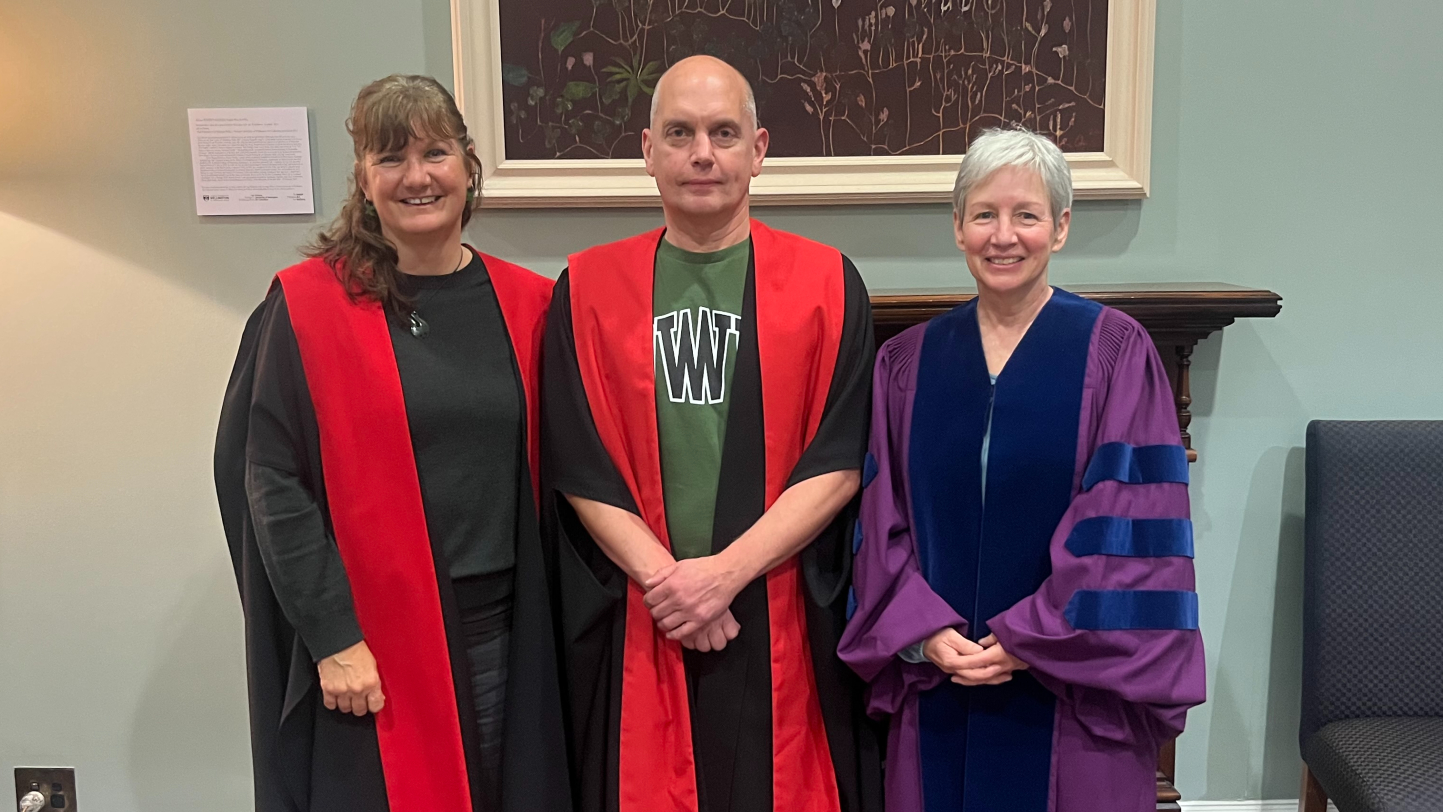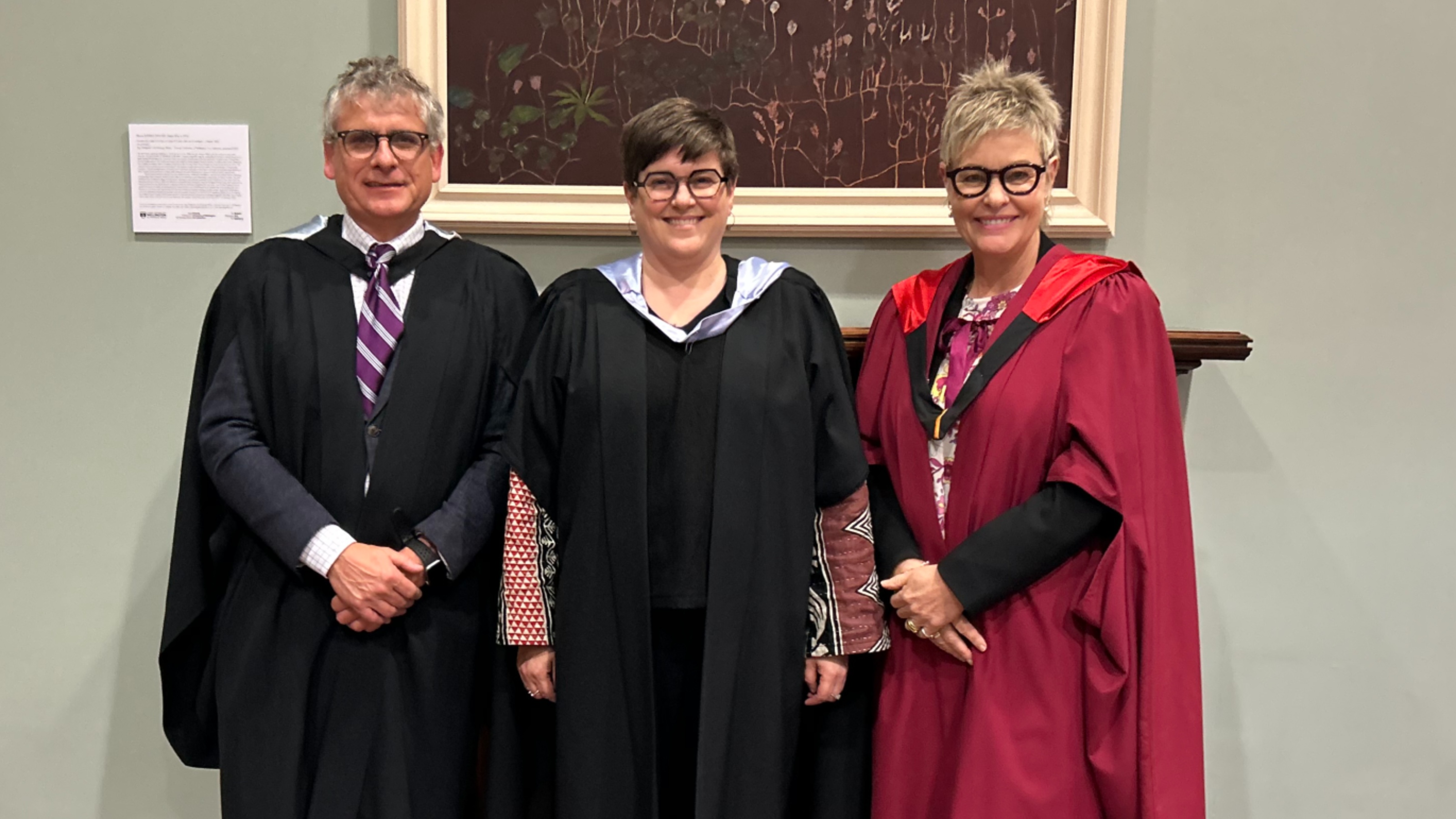Public lecture series
Follow our cutting-edge research and learn more about topical issues through the University's public lecture series.
Watch or listen to lecture recordings
Catch up on our public lecture series with the following selection of recordings.

The beauty of uncertainty
Professor Ivy Liu, from the School of Mathematics and Statistics, presents her inaugural lecture.

Superconducting computers, semiconductors, magnets, and other fun with physics
Professor Ben Ruck, from the School of Chemical and Physical Sciences, presents his inaugural lecture.

Health (in)justice—Examining structural dysfunction in health system law
Professor Fiona McDonald, from the Faculty of Law, presents her inaugural lecture.

Navigating ‘difficult’ heritage from local to global—Rethinking fascist Italy’s monuments and memory
Professor Sally Hill, from the School of Languages and Cultures, presents her inaugural lecture.

Imagining earth—art and life in a time of crisis
Professor Susan Ballard, from the School of English, Film, Theatre, Media and Communication, and Art History, presents her inaugural lecture.

Between the lines—my life in translation
Professor Marco Sonzogni from the School of Languages and Cultures presents his inaugural lecture.

Unplanned, unconfined and the unseen—Precaution and protection in environmental law
Professor Catherine Iorns addresses features of the development and application of environmental protection law in Aotearoa New Zealand.

Enzymes I have known and loved
Professor Wayne Patrick shares insights from biochemistry and evolution, arguing enzymes should be New Zealand’s top high-value export.

Of wise decisions, government accountability and a small-ish democracy
Professor Dean Knight's inaugural lecture examines governmental decision-making.

Psychology Spring Series—Fresh perspectives on wellbeing
Three researchers from different areas of the University discuss their fresh perspectives on wellbeing.

Te Wiki o te Reo Māori webinars 2024
Join us in celebrating Te Wiki o te Reo Māori 2024. Our Te Herenga Waka kaimahi are sharing their expertise and knowledge to celebrate te reo Māori.

Complexity beyond pure reason—A quest to understand universal laws of change
Professor Markus Luczak-Roesch's inaugural lecture explores the complexity of change.

Te Herenga Waka collaborative debate—AI in the academy
AI in academia sparks debate at Victoria University of Wellington, exploring its impact, challenges, and ethical implications. Join the critical conversation.

Pretty creatures? Women and poetry in the early modern world
Professor Sarah Ross reflects on a career recuperating the poetry of early modern women.

Shrinking ice and shifting shores—Connecting change in Antarctica to impact in Aotearoa
Professor Levy's inaugural lecture decodes Antarctic ice sheet changes affecting global sea levels, linking southern research to vital sea level science.

End times—writing about climate change, nukes and existential angst
Professor Rebecca Priestley talks about the issues, like climate change, nukes, and existential angst, that keep her up at night.

She has to...make her own mathematics
Discover the intriguing world of mathematics with Professor Lisa Orloff Clark as she delves into infinity, symmetry, and her journey as a mathematician.
More lecture recordings
For more recordings of lectures on topical issues, see our previous events and spotlight events series.
